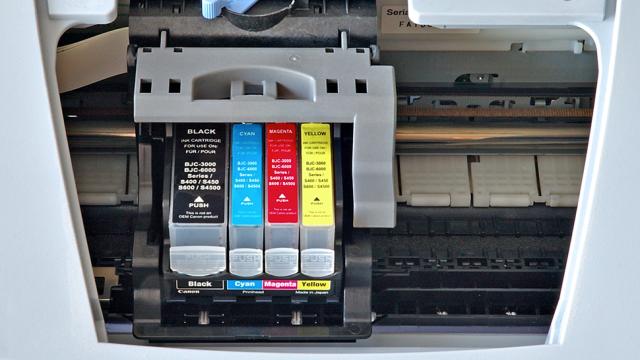It’s an obscure case that hasn’t received a ton of attention as it has made its way to the US Supreme Court but the final verdict could set off a cascade of consequences in the world of consumer products.
Photo: Wikipedia
This week, oral arguments were heard in the case of Impression Products, Inc. v. Lexmark International, Inc. and according to the well-regarded SCOTUSblog it seems that the justices are having a tough time figuring out how to view this difficult legal tangle themselves.
At its most basic, the case is a dispute over Lexmark’s patent rights regarding refilling printer cartridges. Impression Products is a small business with about 25 employees.
It specialises in buying used printer cartridges and remanufacturing them. In 2012, Lexmark decided to add Impression to an already existing lawsuit against other remanufacturers. While the other defendants eventually settled, Image has stuck it out and the case has made it to the highest court in the United States.
You can read the full, technical details of the case here but the simple version goes like this: Since the ’90s Lexmark has used what’s called a “shrink-wrap licence” with its cartridges. It offers a “prebate” to consumers by knocking off 20 per cent of the price in exchange for their agreement to never resell or reuse the cartridge.
The consumer agrees to this the second they open the package. Essentially, Lexmark believes that those cartridges belong to them, not the consumer reselling them because the consumer didn’t have the right to sell them in the first place.
Where this is getting legally tricky for Impression is around the unclear idea of “patent exhaustion.” This is the idea that a manufacturer gives up the right to control what happens to a product after it has been sold. Forbes breaks down the precedents that have been set in these cases:
25 years ago, the US Court of Appeals for the Federal Circuit, which hears patent cases, carved an exception out of the patent exhaustion principle allowing patentees to set post-sale restrictions so long as these are otherwise legal and “clearly communicated”. In a separate case, the Federal Circuit concluded that when a patented item is sold abroad, the patentee’s U.S. rights are not exhausted at all. The Federal Circuit upheld both of these precedents when it ruled against Impression Products earlier this year. The Supreme Court has never ruled on either of them.
Many manufacturing and technology companies have backed Impression in this case. Here’s how the retailer Costco defined what’s at stake in a briefing filed with the court:
Goods of all kinds — computers, smartphones, automobiles and even medicines — incorporate innumerable components made throughout the world. Each product developer and manufacturer would be required to trace to origin the patent rights of every single component it purchases. If it turns out that any individual component was first sold abroad — or even domestically, but subject to a condition on future reuse or resale — the manufacturer would then be required to negotiate an appropriate licensing agreement.
Without much case law to look to, the SCOTUS justices are in a tough spot in which they may have to make a decision that sets a major precedent. In the same way that Citizens United opened the floodgates for money in American politics leaving it forever changed, this case could lead major manufacturers to tack on all sorts of aftermarket restrictions on their products.
It would make the “right to repair” debate seem minuscule in comparison. And it could have a huge effect on innovation and competition. As Randy Stutz, associate general counsel of the American Antitrust Institute put it in a brief supporting Impression, in “free and clear secondary markets, used products can compete with new products to drive prices down and offer more choice. It’s good for consumers, it’s good for competition.”
Observers of SCOTUS arguments can often get a read on how the justices are reacting to each side but they were reportedly perplexed by this case. An exasperated Anthony Kennedy asked, “why hasn’t this been codified? …. Too busy or what? …. Did the failure to codify mean we should be somewhat cautious in extending … or in interpreting [it]?”
As for arguments from the bench that could swing in Impression’s favour, Justice Stephen Breyer said:
[A]ny monopolist, including a patent monopolist, would love to be able to go to each buyer separately and extract from each buyer and user the maximum amount he would pay for that particular item … But by and large, that’s forbidden under many laws, even though it does mean slightly restricted output, and it also means a lower profit for the monopolist.
But Breyer also seemed to lean in Lexmark’s favour when discussing the applications of US patent law overseas:
[T]hey have received money for that first sale under, let’s say, a German patent, and they have not received any money on this American patent. So they say, well, how could you be subjecting us to a rule that that first sale exhausted our right to money under the American patent when we never received any money under the American patent?”
No further progress on this case is expected until at least June, but if a boring story about printer cartridges pops up you might want to pay attention. It could be a decision that leads to a virtual DRM on everything.
